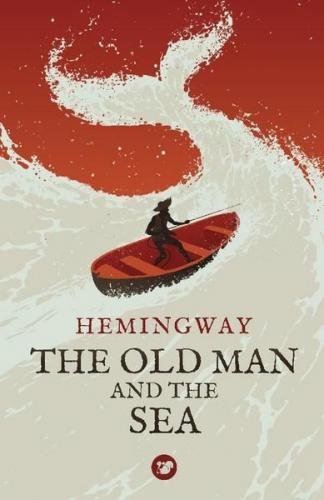
Although he loses the marlin to sharks, the entire struggle constitutes a spiritual triumph in which Santiago emerges as a Christ figure. In his conquest over the marlin, Santiago exhibits exceptional determination and endurance in the face of physical and psychological pain. The novel that was based on Gregorio Fuentes, who befriended Hemingway in 1928, was released in 1952 and earned its author a Nobel prize the same year. Other than fishing, Santiago's greatest joys are the time he spends with his former apprentice, Manolin, and the time he spends talking about baseball, and, in particular, his favorite player, the "great DiMaggio." Besides Manolin, Santiago considers his only friends to be the sea, the fish, and the stars. The old man and the sea by Ernest Hemingway is a short, however, memorable novel that describes a wise old man’s struggle to capture the perfect fish. He views his aging body as a kind of betrayer, and fondly remembers his younger days, when he was exceptionally strong and a successful fisherman. Santiago is humble in his dealings with others, yet takes great pride in his work and himself, and is frustrated and embarrassed by his failures. Eating raw bonito and dorado to maintain strength, while slowly sapping the marlin’s will, Santiago regrets his poor planning: “I will never go in a boat again without salt or limes.” But his words are laced with hope that he will return to the sea.The protagonist of the novella, Santiago is an elderly widowed Cuban fisherman whose "luck" seems to have run out-he hasn't caught anything in 84 days. Day becomes night becomes day, and with little or no sleep the old man loses track of time and islands of Sargasso weed drift by. But it is then, with his quarry hooked, that the true test begins. With his village status of saleo, “the worst form of unlucky”, his body racked and gnarled by years of labour but with blue eyes “cheerful and undefeated”, he sets out on the 85th day since his last catch and rows the skiff far, away from the deep wells that have offered no reward, towards “the schools of bonita and albacore” where he might fare better: “My big fish must be somewhere.” When it suits, when hope takes the bait under the deep blue sea, Santiago offers to pray should he require not only strength but fortitude to land his prize: “I will say ten Our Fathers and ten Hail Marys that I should catch this fish, and I promise to make a pilgrimage to the Virgin de Cobre if I catch him.

He is reverent but not pious, wary of devotion, although he could waver. He thinks and speaks of luck but is not prone to superstition. But lately the sea has been cruel, and the old man has endured 84 days without a catch.

A New York Yankee, “the great DiMaggio”, is his earthly god. Fishing is his life, while baseball, the Gran Ligas, is his religion.


 0 kommentar(er)
0 kommentar(er)
